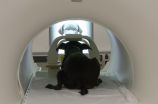(Press-News.org) Cleaning up municipal and industrial wastewater can be dirty business, but engineers at the University of Colorado Boulder have developed an innovative wastewater treatment process that not only mitigates carbon dioxide (CO2) emissions, but actively captures greenhouse gases as well.
The treatment method, known as Microbial Electrolytic Carbon Capture (MECC), purifies wastewater in an environmentally-friendly fashion by using an electrochemical reaction that absorbs more CO2 than it releases while creating renewable energy in the process.
"This energy-positive, carbon-negative method could potentially contain huge benefits for a number of emission-heavy industries," said Zhiyong Jason Ren, an associate professor of Civil, Environmental, and Architectural Engineering at CU-Boulder and senior author of the new study, which was recently published in the journal Environmental Science and Technology.
Wastewater treatment typically produces CO2 emissions in two ways: the fossil fuels burned to power the machinery, and the decomposition of organic material within the wastewater itself. Plus, existing wastewater treatment technologies consume high amounts of energy. Public utilities in the United States treat an estimated 12 trillion gallons of municipal wastewater each year and consume approximately 3 percent of the nation's grid energy.
Existing carbon capture technologies are energy-intensive and often entail costly transportation and storage procedures. MECC uses the natural conductivity of saline wastewater to facilitate an electrochemical reaction that is designed to absorb CO2 from both the water and the air. The process transforms CO2 into stable mineral carbonates and bicarbonates that can be used as raw materials by the construction industry, used as a chemical buffer in the wastewater treatment cycle itself or used to counter acidity downstream from the process such as in the ocean.
The reaction also yields excess hydrogen gas, which can be stored and harnessed as energy in a fuel cell.
The findings offer the possibility that wastewater could be treated effectively on-site without the risks or costs typically associated with disposal. Further research is needed to determine the optimal MECC system design and assess the potential for scalability.
"The results should be viewed as a proof-of-concept with promising implications for a wide range of industries," said Ren.
Power companies have many reasons to perk up at the possibility of a carbon-negative wastewater treatment solution. The Environmental Protection Agency's Clean Power Plan, expected to take full effect in the year 2020, will require power plants to comply with reduced CO2 emission levels.
The study may also have positive long-term implications for the world's oceans. Approximately 25 percent of CO2 emissions are subsequently absorbed by the sea, which lowers pH, alters ocean chemistry and hence threatens marine organisms, especially coral reefs and shellfish. Dissolved carbonates and bicarbonates produced via MECC, however, could act to chemically counter these effects if added to the ocean.
"This treatment system generates alkalinity through electrochemical means and we could potentially use that to help offset the effects of ocean acidification," said Greg Rau, a senior researcher at the Institute of Marine Sciences at the University of California Santa Cruz and a co-author of the study. "This is one of several environmentally-friendly things this technology does."
Many wastewater treatment plants are located on coastlines, raising the possibility that future MECC implementation in these facilities could couple both CO2 and ocean acidity mitigation.
INFORMATION:
Lu Lu and Zhe Huang, both graduate researchers in the Department of Civil, Environmental, and Architectural Engineering at CU-Boulder, co-authored the study. The National Science Foundation provided funding for the research.
(BOSTON) - Super productive factories of the future could employ fleets of genetically engineered bacterial cells, such as common E. coli, to produce valuable chemical commodities in an environmentally friendly way. By leveraging their natural metabolic processes, bacteria could be re-programmed to convert readily available sources of natural energy into pharmaceuticals, plastics and fuel products.
"The basic idea is that we want to accelerate evolution to make awesome amounts of valuable chemicals," said Wyss Core Faculty member George Church, Ph.D., who is a pioneer ...
Some neutron stars may rival black holes in their ability to accelerate powerful jets of material to nearly the speed of light, astronomers using the Karl G. Jansky Very Large Array (VLA) have discovered.
"It's surprising, and it tells us that something we hadn't previously suspected must be going on in some systems that include a neutron star and a more-normal companion star," said Adam Deller, of ASTRON, the Netherlands Institute for Radio Astronomy.
Black holes and neutron stars are respectively the densest and second most dense forms of matter known in the Universe. ...
From an early age, human infants are able to produce vocalisations in a wide range of emotional states and situations - an ability felt to be one of the factors required for the development of language. Researchers have found that wild bonobos (our closest living relatives) are able to vocalize in a similar manner. Their findings challenge how we think about the evolution of communication and potentially move the dividing line between humans and other apes.
Animal vocalisations are usually made in relatively narrow behavioural contexts linked to emotional states, such ...
Washington, DC-- Climate change caused by greenhouse gas emissions will alter the way that Americans heat and cool their homes. By the end of this century, the number of days each year that heating and air conditioning are used will decrease in the Northern states, as winters get warmer, and increase in Southern states, as summers get hotter, according to a new study from a high school student, Yana Petri, working with Carnegie's Ken Caldeira. It is published by Scientific Reports.
"Changes in outdoor temperatures have a substantial impact on energy use inside," Caldeira ...
A team of scientists believe they have shown that memories are more robust than we thought and have identified the process in the brain, which could help rescue lost memories or bury bad memories, and pave the way for new drugs and treatment for people with memory problems.
Published in the journal Nature Communications a team of scientists from Cardiff University found that reminders could reverse the amnesia caused by methods previously thought to produce total memory loss in rats. .
"Previous research in this area found that when you recall a memory it is sensitive ...
Dogs have a specialized region in their brains for processing faces, a new study finds. PeerJ is publishing the research, which provides the first evidence for a face-selective region in the temporal cortex of dogs.
"Our findings show that dogs have an innate way to process faces in their brains, a quality that has previously only been well-documented in humans and other primates," says Gregory Berns, a neuroscientist at Emory University and the senior author of the study.
Having neural machinery dedicated to face processing suggests that this ability is hard-wired ...
Trauma may cause distinct and long-lasting effects even in people who do not develop PTSD (post-traumatic stress disorder), according to research by scientists working at the University of Oxford's Department of Psychiatry. It is already known that stress affects brain function and may lead to PTSD, but until now the underlying brain networks have proven elusive.
Led by Prof Morten Kringelbach, the Oxford team's systematic meta-analysis of all brain research on PTSD is published in the journal Neuroscience and Biobehavioural Reviews. The research is part of a larger ...
CHARLOTTESVILLE, VA (AUGUST 4, 2015). Researchers at the University of Virginia (UVa) examined the number and severity of subconcussive head impacts sustained by college football players over an entire season during practices and games. The researchers found that the number of head impacts varied depending on the intensity of the activity. Findings in this case are reported and discussed in "Practice type effects on head impact in collegiate football," by Bryson B. Reynolds and colleagues, published today online, ahead of print, in the Journal of Neurosurgery.
The researchers ...
August 4, 2015 -- Treating maternal psychiatric disorder with commonly used antidepressants is associated with a lower risk of certain pregnancy complications including preterm birth and delivery by Caesarean section, according to researchers at Columbia University's Mailman School of Public Health, Columbia University Medical Center, and the New York State Psychiatric Institute. However, the medications -- selective serotonin reuptake inhibitors, or SSRIs -- resulted in an increased risk of neonatal problems. Findings are published online in the American Journal of Psychiatry.
"To ...
Chestnut Hill, MA (August 4, 2015): It's been said that "Those who don't know history are doomed to repeat it," but even if you know your own history, that doesn't necessarily help you with self-control. New research published in the Journal of Consumer Psychology shows the effectiveness of memory in improving our everyday self-control decisions depends on what we recall and how easily it comes to mind.
"Despite the common belief that remembering our mistakes will help us make better decisions in the present," says the study's lead author, Hristina Nikolova, Ph.D., an ...

